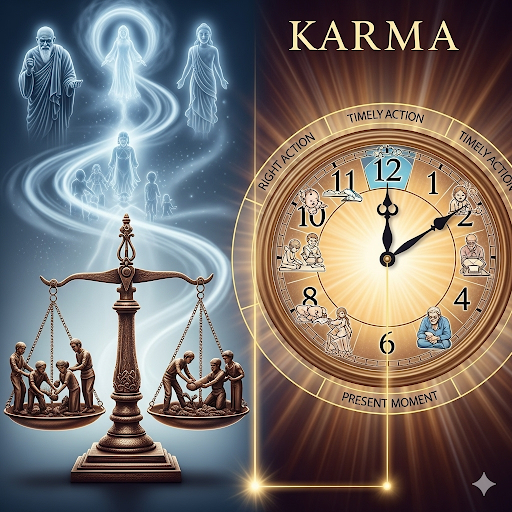Karma Unveiled: The Traditional View vs. The 7Schema Perspective
Posted on September 3, 2025 • 3 min read • 328 views

Advertisement
In This Article
Karma is a concept that has intrigued and guided humanity for centuries. It's often misunderstood, leading to a host of questions about destiny, justice, and the consequences of our actions. While the traditional view of karma is widely known, another school of thought, 7Schema, offers a revolutionary perspective that challenges long-held beliefs. Let's explore the core differences and uncover a new understanding of this powerful principle.
What Is Karma? The Traditional View
The traditional understanding of karma, particularly in Eastern religions like Hinduism and Buddhism, is a concept of cause and effect. It's the sum of a person's actions—both good and bad—that determines their future fate, often spanning across multiple lifetimes.
This view operates on a simple, moralistic framework: good deeds lead to positive outcomes, and bad deeds result in negative consequences. It’s believed that the current life's experiences are a direct result of actions from a past life, and actions in this life will shape the next one. This creates a continuous cycle of birth, death, and rebirth known as the "karmic cycle."
In this traditional context, karma is a cosmic moral ledger. If you commit an evil act, you're not just punished in this life; you're also building up negative karma that will follow you into your next existence, possibly leading to a life of suffering or hardship.
7Schema's Revolutionary Take on Karma
The 7Schema school of thought offers a radically different, more practical interpretation of karma. It starts by going back to the origin of the word. "Karma" is an Indian word that simply means "deed" or "action." Therefore, the word "karmic" simply means that for every action or deed, there is a reaction or consequence, whether that consequence is perceived as good or bad.
The key differentiator in the 7Schema philosophy is the emphasis on timing. According to this perspective, the universe isn't a moral judge that knows "good" from "bad." The consequences of our actions are not based on a moralistic evaluation but rather on whether those actions were taken at the right time.
This simple yet profound idea explains many life paradoxes. For instance, why do seemingly "evil" people prosper while "good" people suffer? The 7Schema perspective suggests it's not about morality but about timing and survival. The person who thrives is often the one who makes the right moves at the right time, regardless of their moral standing.
7Schema argues that the traditional idea of past lives and karmic cycles is unproven. There is no tangible evidence to support the concept of a previous existence. However, what is undeniably true is the rhythm of the universe, as seen in the calendar. Just as a farmer knows to plant seeds at the right time of year for a successful harvest, we too must act in alignment with the correct timing to achieve success and avoid failure.
The 7Schema portal calendar logic provides a framework for understanding these timings. By doing readings for thousands of people, this system has demonstrated that aligning one's actions with the right moments in the calendar leads to fewer failures and more successes.
The Key Difference in a Nutshell
In conclusion, while the traditional view of karma is a complex web of morality and reincarnation, the 7Schemaperspective simplifies it to a single, powerful truth: timing is everything. It's not about being a "good" or "bad" person, but about knowing when to act to achieve your desired outcome. This modern, practical approach to karma empowers individuals to take control of their destiny in this life, right now.
Advertisement

Comments (0)
Leave a Reply
Be the first to comment.